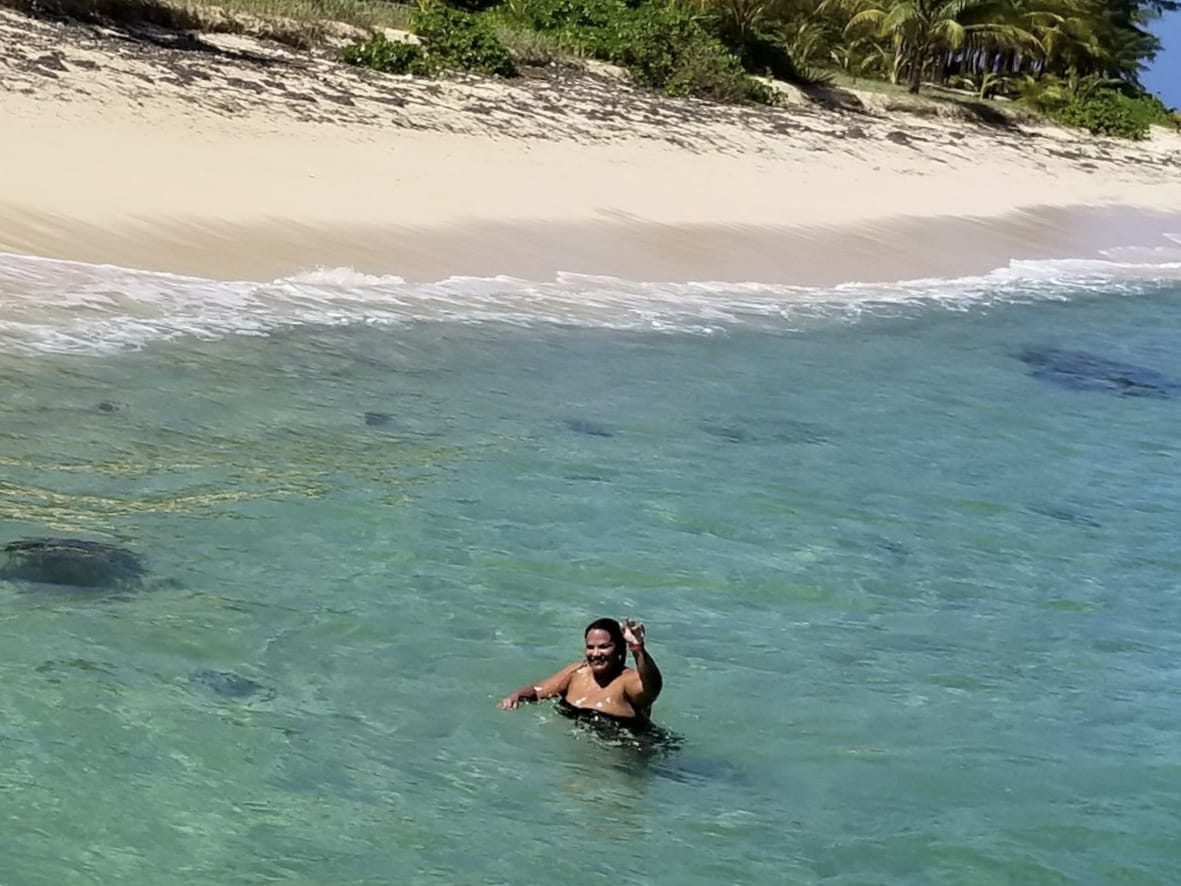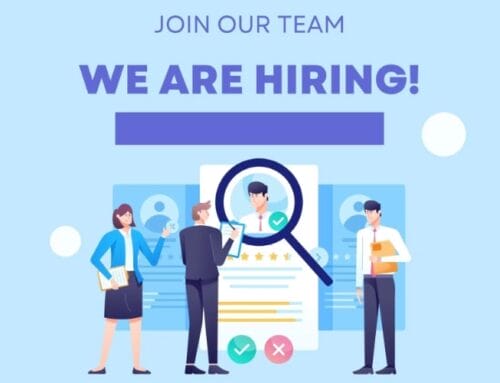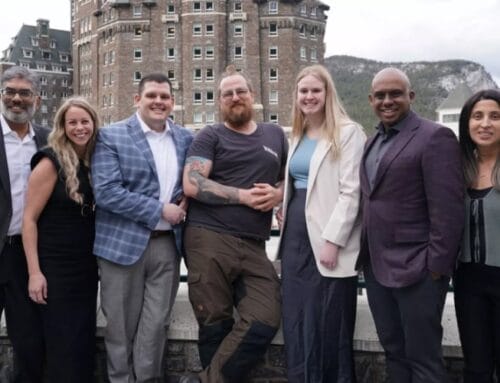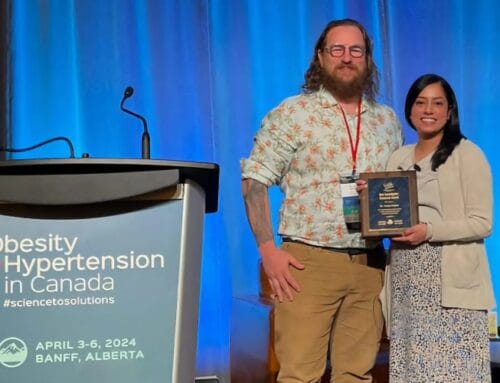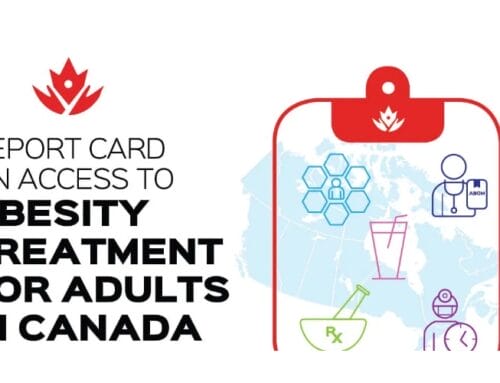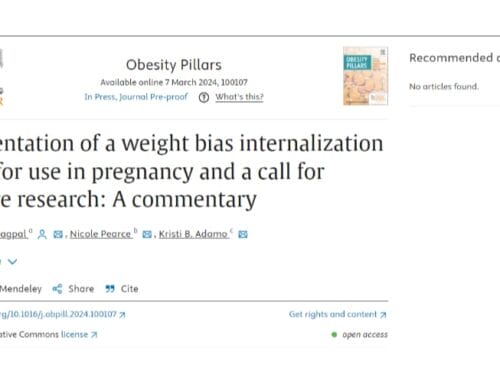by Elizabeth Williams
Much of my work has focused on increasing understanding so that our societies are inclusive, peaceful and accepting. As a result I have the opportunity to work with and meet some truly amazing people who create and actually do things to bring change. Engaging with Obesity Canada and some personal reading has prompted me to think about what I can do to end discrimination based on size and weight, or at least bring greater awareness and make my environments more inclusive. The negative language used around obesity or being overweight, and the moral judgments passed, perpetuate negative attitudes and stereotypes of individuals in larger bodies. I have experienced exclusion based on body size, and I am deeply aware of the negative impacts on me.
The answer to what can I do is pretty simple: start with changing language. I have responsibility to call out weight-biased language and judgement. I have a responsibility to not allow negative attitudes and stereotypes associated with the language of overweight and obesity to be used in my presence. I recently realized that my two of my favourite activities, travel and visits home, are fraught with situations where I am confronted with negative attitudes and stereotypes about body weight and size, but they are also opportunities to create greater awareness and maybe change.
Travel: I love it. I spend a significant amount of my time and money pursuing new experiences and activities. Yet, I always feel slightly anxious about how my experience will unfold, how often I will be reminded that my body is larger than the average woman’s. If I will face situations where pejorative words are used to put me in my place. The first challenges starts with the flight. How much of a struggle will it be to get the belt around my waist? Who will be seated next to me? Another person in a larger frame means our butts, shoulders and arms are pressed against each other for five-plus hours?
Last year I traveled to a beach resort in the Caribbean for a getaway with friends and to try kite surfing. Our small hotel offered private lessons for all levels. I am a complete novice. Their website did not indicate that they only have equipment for surfers of a certain size range. I arrived in the equipment room and the young guys working started making comments about my size and questioned how they could equip me. The manager finally entered and told them to find the equipment used by a larger man last year. It was not novice-level equipment but all they had that would fit. The manager said he had seen me swim so felt I was strong enough “to manage.” At this moment I was in flight or fight mode. My cheeks were blushing, I was having a full-on internal conversation berating myself for not losing weight before this trip and for being so bold as to try to learn a new sport. I so badly wanted to walk out and relocate to a different resort where I would not be so humiliated. Instead I decided to fight. I stayed. I persevered. I was the most diligent student in the group and took lessons everyday for five days. I improved and learned I really liked the challenge of the sport. I gained the respect of the teaching team and equipment guys. However, looking back I missed a significant opportunity: I could have sat with the manager and told him about how I had almost walked out, that he almost lost a significant amount of business because of the language used, because of the unconscious or perhaps conscious bias they held about people in larger bodies. I could have encouraged him to ensure they had equipment for all sizes and levels and reminded him of the power of the word of mouth. Had my initial reception been different, I would be citing his shop as a model for inclusive sport experience and that there is a whole demographic of people in larger bodies who have disposable income for these kinds of experiences.
My other favourite event: summer travel home and family time. My trip home this year, like always, included gatherings of family and friends often centred around food, and included lengthy exchanges on “who looks great” (translation: has lost weight). Followed by questions and details on how the leaner body has been achieved. I always know when I am meeting “expectations” as family and friends say will go out of their way to comment on my size, or for those more subtle to say I am looking great or fit.
The last few visits no one has told me so.
The fact that I notice whether or not I am receiving positive comments means I have a ways to go in my effecting positive change. However, I am making progress. As I returned home from my summer trip, I started thinking about losing weight with a restrictive eating/intense exercise regime. I shifted my focus to thinking about how much I treasure my time spent with family, what new information I learned and what I can do to deepen relationships. I am also strategizing about how to have an open discussion at Thanksgiving with friends and family members who use negative language when talking about trips or visits. One, who I love a lot, regularly focuses on how she was “bad,” “eating too much,” “so many rich meals.” The negative way of describing what I know she considers to be valuable time with her family or exploring a new place reflects tells me what she is thinking about food and body image, and the priority she places on physical presentation over quality time and fun. I know she loves me but her comments hurt, as it feels like she is subtly criticizing me for my size, what and how much I eat. It directly impacts my self-esteem on body-size and around food.
I regularly battle the stereotypes and limitations society places on me because of my size. The constant “imposing” myself in spaces, places and activities where people of my “size;” who are “larger”, “heavier” then the average participant is exhausting. We see on a daily basis in the media and personal stories the negative impacts of exclusion. I want to contribute to making our society one where body diversity is accepted. Just as I would call out racist, misogynistic or sexist language, I also need call out negative or derogatory language around weight, food and size because I know this language has negative impacts. I not only need to demand that space be made for me, but I also need to call people out when offensive language is used.
I read somewhere that pain and pleasure is where you put your focus. So, I continue to try and place my focus on the pleasurable parts of traveling: exploring new places, and going home, spending time with family and friends. I try to shift my focus from a judgmental review of the weight gain and losses of others.
I try to remember that words are important, they shape the way we see the world, that I want to see my world beyond size and physical presentation to one that promotes self-acceptance, body diversity and the well-being of all sizes.
Elizabeth Williams is Chief of Staff of the Canadian Human Rights Commission and passionate about issues of human rights and discrimination.

